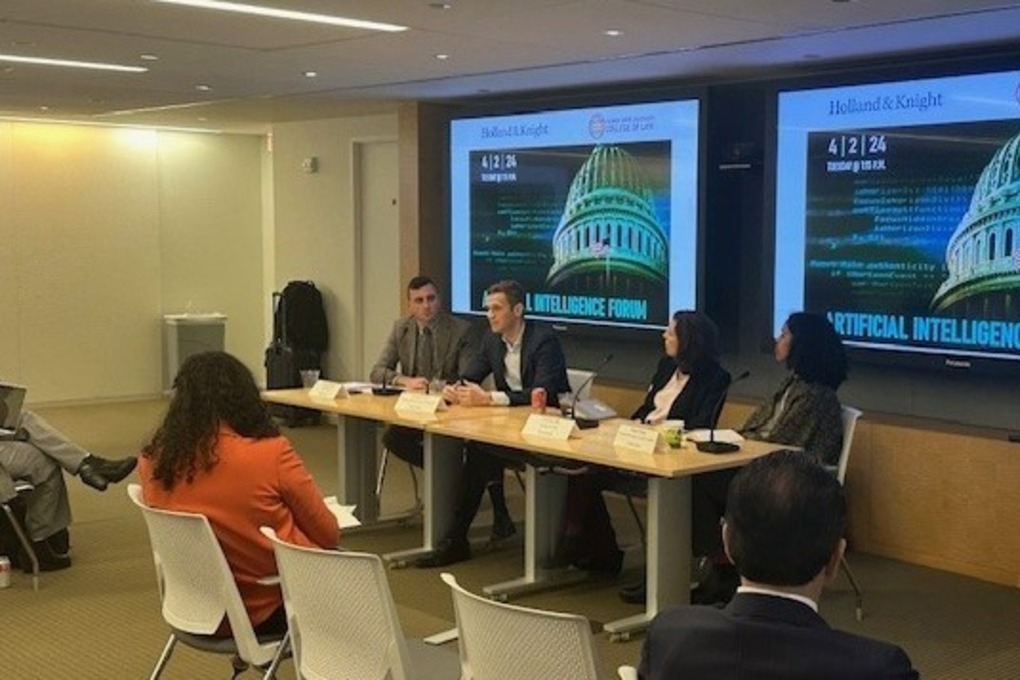FSU Law Institute Holds AI Forum in Washington, D.C.

Panelists discuss the implications of articifical intelligence.
On April 2, FSU College of Law’s Institute of Law, Technology & Innovation and Holland & Knight co-hosted an informative Artificial Intelligence Forum in Washington, D.C. Approximately 800 virtual attendees and 80 in-person attendees participated in the half-day conference, which consisted of three panels and a thought-provoking keynote address by Anu Bradford, the Henry L. Moses professor of law and international organization at Columbia Law School. The panels featured top academics, policy market regulators, and thought leaders who discussed the promises and perils of artificial intelligence, including:
- Michael Atleson, senior attorney, Federal Trade Commission
- Shawn Bayern, Larry & Joyce Beltz professor and associate dean for technology, FSU College of Law
- Da’Morus Cohen, partner, Holland & Knight
- Anthony DiResta, partner and co-chair of the consumer protection defense and compliance team, Holland & Knight
- Michael Frank, former senior fellow, Center for Strategic and International Studies
- Brian Goodrich, partner, Holland & Knight
- Rich Harper, partner-in-charge-New York office and AI practice group co-chair, Baker Botts
- Kashmir Hill, tech reporter, The New York Times
- Hodan Omaar, senior policy analyst, Information Technology and Innovation Foundation
- Keith Sonderling, commissioner, U.S. Equal Employment Opportunity Commission
- David Vladeck, A.B. Chettle chair in civil procedure, Georgetown Law Center
- Kwamina Williford, partner and co-chair of the consumer protection defense and compliance team, Holland & Knight
During her lively keynote address, Bradford applied theories and findings from her recently authored book, “Digital Empires: The Global Battle to Regulate Technology,” to artificial intelligence. “There is a global consensus that technology should be regulated, but not what that regulation should look like,” began Bradford, before describing the intensifying global battle among the three dominant digital “empires”—the United States, China, and the European Union.
The event was the first in Washington, D.C., and one of many in-person and virtual events hosted by the law school’s new Institute of Law, Technology & Innovation in its first year. Information about the institute and its previous events is available on the College of Law website. You can also watch a recording of the AI Forum online.
